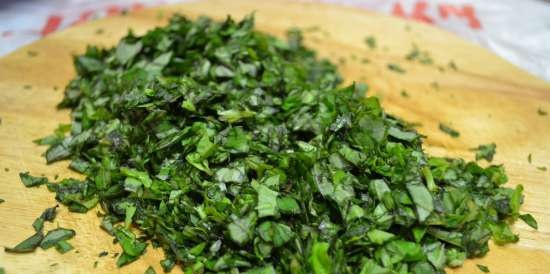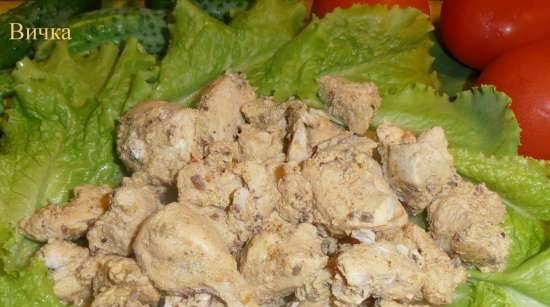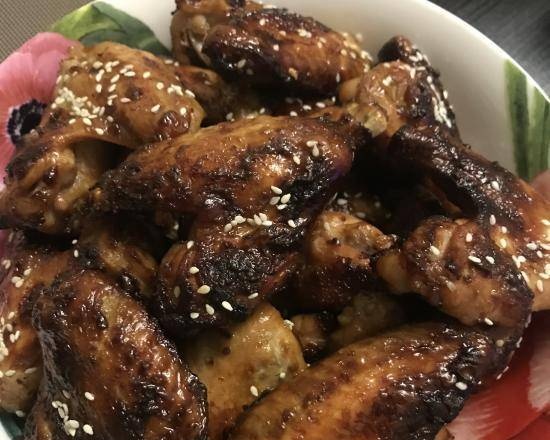|
 Are you stressed? As you know, there is no single generally accepted definition of stress, which, in turn, is found everywhere. Increased stress and associated physical and psychological reactions are widespread in modern society. Are you stressed? As you know, there is no single generally accepted definition of stress, which, in turn, is found everywhere. Increased stress and associated physical and psychological reactions are widespread in modern society.
In 2017, the American Psychological Association conducted a survey on "Stress in America." It was noted that 80% of Americans experienced at least one physical or emotional symptom of stress within a month: headache (34%), depression (33%), nervousness or anxiety (33%), depression (32%) ...
Meanwhile, people are now much more likely to recognize the direct link between stress and physical and mental health. 36% of those surveyed consider stress reduction as a personal priority.
There are countless antidepressants known, including behavioral, medication, and other therapies, but adaptogens are among the modern favorites in dealing with stress.
For centuries, among the various stress reduction factors, the use of herbs to maintain body balance has been considered a principle of a healthy lifestyle in Eastern Chinese medicine and Ayurveda. The idea that certain plants can relieve chronic stress has been around in Western medicine for about 60 years. Only in the middle of the last century did scientists define adaptogens as non-toxic compounds with many mechanisms of action and pharmacological effects that promote adaptation and survival.
The adaptogenic properties of plants affect several major stress mediators, both inside and outside cells. Thus, adaptogens have a broader spectrum of action than traditional drugs that target one symptom of the disease.
Adaptogens are characterized as “good stressors” that induce stress-defensive responses. By stimulating the release of mediators of the adaptive stress response, adaptogens increase the body's resistance to stress.
Chronic stress negatively affects health. Prolonged stress produces cognitive, emotional and behavioral dysfunctions, as well as inflammatory processes in the body, which potentially lead to cardiovascular disease, diabetes, cancer, autoimmune syndromes and mental illness. Reducing stressful situations and relieving stress are essential conditions for human health.
This is where adaptogenic plants play a therapeutic role. They have been found to normalize elevated levels cortisol and corticosterone, stress hormones associated with anxiety, depression, indigestion, and other problems that result in chronic stress.
The National Institutes of Health, National Center for Complementary and Integrative Health Care, emphasizes the careful use of medicinal plants due to limited scientific evidence.
At the moment, there are about 70 species of medicinal herbs with adaptogenic properties in the literature, including ginseng, rhodiola rosea and poppy root. The most popular adaptogens are tulsi and ashwagandha root.
Referred to as "holy basil", tulsi is considered the "elixir of life" in Ayurvedic medicine. This pungent herb is sometimes called "hot basil". It is used to make spicy soups and is added to dishes when frying in hot oil.Tulsi is used to treat a variety of conditions, including anxiety, asthma, diarrhea, fever, arthritis, eye conditions, and indigestion.
According to experiments "In vitro", where animal and human cells are used, it was found that tulsi has medicinal properties: adaptogenic, antibacterial, anti-inflammatory, cardiovascular and immunomodulatory. The 2017 Journal of Complementary and Alternative Medicine reports 24 studies that were conducted to evaluate the clinical efficacy and safety of tulsi. As a result of the experiments, the positive properties of tulsi were noted without any side effects. The findings have led to an increase in the use of tulsi in the treatment of diabetes, metabolic syndrome and psychological stress. However, further research is still needed to determine the mechanism of action of tulsi and its dosage. It is advisable to conduct additional examinations of patients who could benefit from the use of tulsi.
In the Natural Medicines database, holy basil is characterized as “safe for short-term use by mouth”. The source indicated provides some preliminary results regarding the effectiveness of tulsi. Tulsi relieves feelings of anxiety, stabilizes blood sugar and reduces stress symptoms. In any case, more proof is still required. There is some evidence that Holy Basil extract can be taken without harm for up to six weeks. Due to the lack of reliable information, it is not recommended to use tulsi during pregnancy and lactation.
Often referred to as "Indian ginseng" or "winter cherry”, The adaptogenic herb Ashwagandha root got its name from its aroma. The literal translation of ashwagandha is "the smell of a horse." It is believed that if you regularly consume ashwagandha root extract, you can gain horsepower.
Known as the "royal herb" in oriental medicine, ashwagandha is the most commonly used and studied adaptogen. As research is limited, ashwagandha is not listed in the Natural Medicines database.
In 2012, an experiment was conducted to determine the safety and effectiveness of using ashwagandha root for reducing stress and anxiety. Participants who took 300 milligrams of highly concentrated ashwagandha root extract twice daily for 60 days experienced significant reductions in stress and cortisol levels. No serious side effects were found. Scientists have concluded that ashwagandha root is safe to use, fights stress and improves quality of life.
Further long-term studies involving more participants with varying degrees of physical and psychological stress are still needed to determine the impact of ashwagandha root on stress tolerance.
Experiments have shown that adaptogens relieve stress symptoms. At the same time, additional analysis is needed to determine the effectiveness of the action of adaptogens, as well as the range of interaction between adaptogens and stress responses in order to prevent the development of chronic stress and age-related diseases. Ultimately, we need to figure out how adaptogens in general affect the healing process.
However, a comprehensive assessment of health and dietary status by a physician and nutritionist is required. At the same time, there should be well-founded arguments for obtaining individual recommendations regarding the diet, including herbal medicines.
N.V. Naumchik
|







